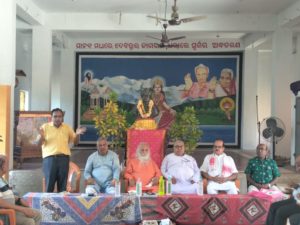Citizenship Under CAA: India’s Approach to Complexities of Asylum
Asylum is an internationally recognized status that shields an individual’s life, granting access to certain social privileges, such as aid and health facilities. Globally, the question of asylum seekers has been at the forefront of policy debates, exploring whether they should be granted formal citizenship after spending a specific time span in a particular country, given the fact that the number of stateless people has drastically increased in past fifty years. Ultimately, the grant of formal citizenship to an asylum seeker is a sovereign right of a country and cannot be enforced by global bodies. For instance, in European countries, asylum seekers or refugees are not seamlessly integrated into society; instead, they are subject to restrictions imposed by law on their movement and daily activities. European states argue that granting formal citizenship to refugees and asylum seekers could bring demographic changes, turning the natives into a minority, and could lead to increased competition over resources and jobs, potentially disrupting societal balance.”
In India, the question of granting citizenship to refugees from Myanmar, Sri Lanka, Bangladesh, Afghanistan, and Pakistan has been debated in policy circles, academia, and parliament. In the 1970s and 80s, Bangladeshi asylum seekers posed a demographic imbalance threat in Assam and Bengal. Today, refugees from Myanmar in India are considered an existential threat and potential conduits for terrorism and instability. Over several years, refugees from Pakistan and Afghanistan have sought permanent citizenship in India, indicating active political and policy engagement to address refugee issues, including amending citizenship laws. The extension of citizenship to Sri Lankan Tamils, Ugandan refugees, or the implementation of NRC in Assam represents earlier moves for formal inclusion and distinction between citizens and illegal immigrants. It is important to highlight that the Indian government has responded to these pressing issues, addressing distinct challenges with a targeted approach. When confronted with the issue of Sri Lankan refugees, the legislature adopted measures specifically to address their concerns, with legal provisions designed exclusively for refugees originating from Sri Lanka. This demonstrates a nuanced and focused strategy in addressing regional challenges. The 2019 Citizenship Amendment Act (CAA) was enacted to address religious persecution against minorities in the adjoining countries of Afghanistan, Bangladesh, and Pakistan.
The exploration of the constitutions of Afghanistan (Art 2), Bangladesh (Ar-2(a)), and Pakistan (Art 2) states that Islam is the religion of these republics, justifying their laws based on its scriptures. These laws favor their Muslim citizens, leaving minorities like Sikhs, Buddhists, Hindus, Parsis, etc., vulnerable to interpretations of law against their interests. This threat to their existence forces them to flee these countries, seeking asylum in India. For example, Delhi is home to a substantial Sikh population, with over 21 thousand Sikhs having migrated from Afghanistan. The most challenging aspect has been the political instability in Afghanistan and Pakistan, compelling people to migrate. In 1971, India accepted Bangladeshi refugees on humanitarian grounds; however, granting them citizenship might have triggered something unprecedented. Now, times have changed, and the population has increased manifold with an increase in their needs that the government has to fulfill. Since 1947, successive governments, irrespective of political affiliations, have granted citizenship to Sri Lankan citizens at various junctures. Approximately 4,61,000 individuals were conferred citizenship, with 2,16,000 refugees returning to Sri Lanka after 1983, while 95,000 continue to reside here. It is essential to note that similar citizenship provisions were not extended to individuals from Bangladesh or Pakistan.
This contextualizes the India’s decision to extend citizenship to persecuted minorities from these countries, taking a moral stance. It is also an upright decision to address the question of minorities in the neighbouring countries. Since India is emerging as a civilizational nation, it is taking a moral responsibility to look after the rights of denominations that recognize themselves with Hinduism. Taking a cue from the Gandhian approach to the question of Hindus and Sikhs living in Pakistan, in which he emphasized that ‘if they don’t wish to stay there, they should unquestionably return to India. He asserted that it is the duty of the Indian Government not only to welcome them but also to provide employment, voting rights, and ensure their happiness. Gandhi specifically mentioned Hindus and Sikhs in this context.
-Altaf Mir PhD Scholar Jamia Millia Islamia








